Hello there! Are you looking for the most comprehensive Japanese lessons? You have come to the right place! This time, let’s learn together what the Japanese phrase “Sasuga” means, which you might hear most of the time when you watch anime and which makes you wonder and curious about what “Sasuga” means in English.
Even in everyday conversation, this phrase is often used. Generally, sasuga is known as a complement phrase, but there is another way to use it. Therefore, let’s learn it completely this time so that we can avoid misunderstandings and keep it in mind, as well as be able to use and understand it accurately in actual conversation. So let’s learn about Sasuga together!
If you would also like to learn important and frequently used phrases in everyday Japanese, be sure to check out our articles below as well!
Read Also:
What is the Meaning of “Hajimemashite (はじめまして)”?
What is “Kabedon壁ドン”: The Japanese Unwritten Culture
Contents
1. The Original Kanji (Japanese Character) of Sasuga
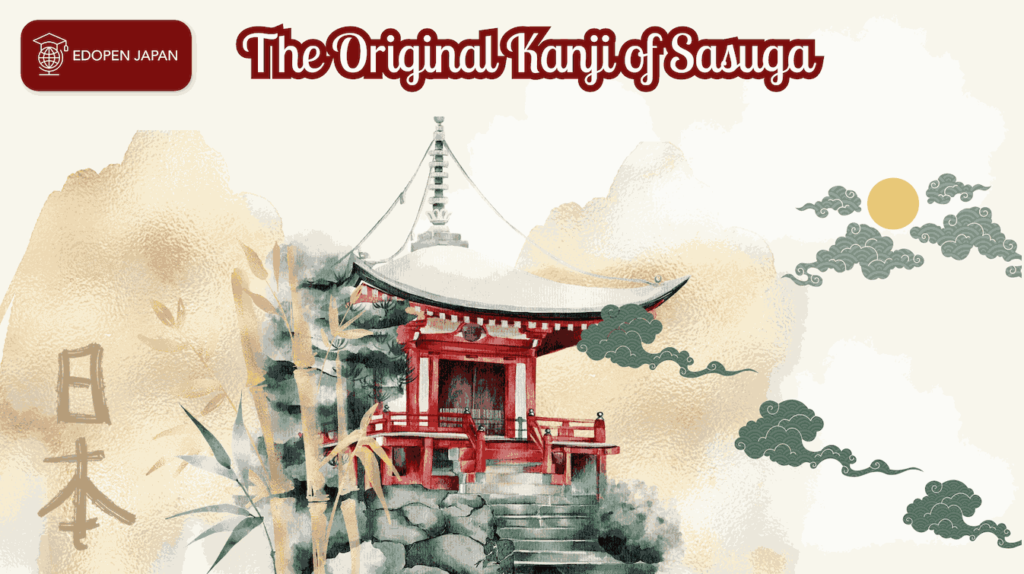
A fact for you is that “Sasuga” is actually also used as 苗字・Myouji・Surename」or the word that Japanese use to refer to one’s family name (as opposed to one’s given name) in everyday life. Although often written in hiragana, the kanji of Sasuga is originally 流石.
It consists of 2 characters of kanji, as follows:
- 流(nagare・ryu which means flow)
- 石(ishi・seki which means stone)
It is said that “ryuseki” and “nagareishi” are sometimes read as well as in addition to “sasuga”. Also, please note that “流石」 is the “当て字」ateji or phonetic equivalent, the special Chinese character used as a phonetic symbol rather than for its meaning.
At this point, you may feel confused and wonder why the flowing stone or (ryuseki or nagereru seki) is said or read as sasuga? Please don’t skip this part, open your eyes, prepare your notebook, and let’s read the next part of the short history of this phrase. So let’s learn about Sasuga together!
2. The Brief History of Sasuga
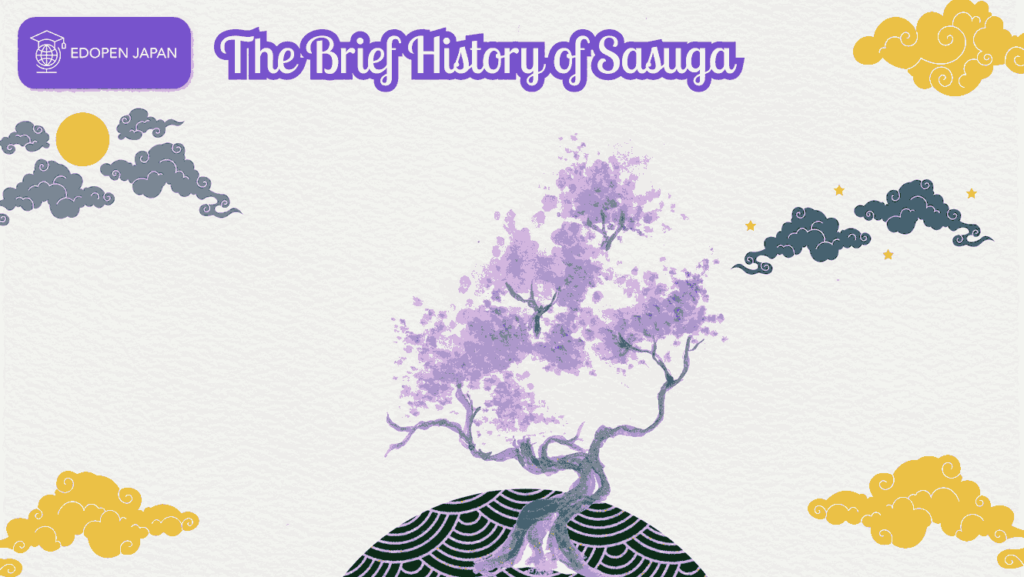
Originally, it is said that something happened behind this phonetic word, sasuga. A long time ago, an ancient Chinese politician made a slip of the tongue, and this word came from his misstatement right after that. This happened in the Jin Dynasty.
Furthermore, there was a person named Sun Chu who told an acquaintance the word『枕石漱流(ちんせきそうりゅう) “Chinseki Soryu” which means “Use a stone as a pillow, wash your mouth with the flow of the river, and live freely in nature. Then this acquaintance tried to say it, unfortunately, he had mistakenly said it as『枕流漱石(ちんりゅうそうせき)』”Chinryu Souseki” (wrong, not IN ORDER) where the meaning changed to to “The pillow style of Soseki, or in other words, a message of using a stone to wash the mouth and using the flow of the river as a pillow”.
Right after hearing this mistake, Sun Chu laughed, but he hated it and said that『石でうがいをするのは歯を磨くため。川の流れを枕にするのは耳を洗うため』which means the acquaintance uses the stone to brush the teeth. (The acquaintance) uses the flow of the river as a pillow to wash the ears as an evasion and a way to warn the acquaintance.
Then, for the first time hearing this response of Sun Chu, an acquaintance said, “It’s wonderful or Sasuga da!” This word, which came by taking the two letters of 『枕流漱石(ちんりゅうそうせき)』or “Pillow Style of Soseki”, was then written and known as 流石・さすが・Sasuga』.
3. The Meaning of Sasuga
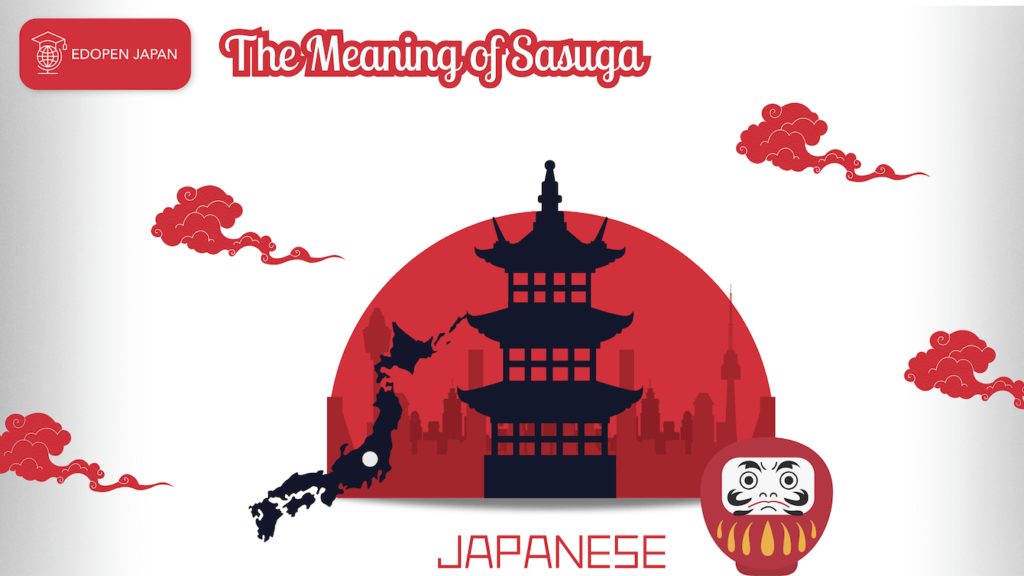
In this section we will learn the 3 meanings and how to use each of them in specific situations.
The First Meaning and Situation
First, the meaning of “sasuga,” when someone gives you this phrase, is, “After all, this is just right for you. They are praising what you are doing and what you have accomplished. When your friends say this to you, it means that they are impressed with the feeling of praise about the behavior or achievement you had, and they are reassured that the result happened as expected. This phrase is well used to affirm and emphasize what was previously thought with the nuance of “as expected and it does not follow the expectations”.
For example:
こんな難しい院試問題をすぐに解けるなんて、流石だ!
Meaning: It is wonderful! You can solve such a difficult exam question right away.
In addition, when others immediately solved a problem that we were having trouble with, people would say, “Sasuga! “It’s sasuga (impressive), isn’t it?” as a response. It is also used when people have heard that this person is good or skilled in the area where we are having trouble, but people use “sasuga” to express, “It’s amazing that these people can do it.
In this first part, “sasuga” is often used as “praise” in the sense that it was as good as the reputation we heard, and it was even more impressive than the reputation we heard before.
Second Meaning and Situation
The meaning of “sasuga” is “Nevertheless, there are things that are different, and the feelings of opposition remain. This phrase for the second part has the same meaning as “having said that,” “absolutely,” and “for sure. However, it admits something, and unfortunately it also shows feelings that are contrary to it.
In this case, sasuga is used to indicate the opposite of what you think, such as “I really enjoyed it, but I was extremely tired” and “It was delicious, but I ate too much.
For example:
こちらのお寿司は本当に美味しいけれど、さすがにそんなにたくさん食べれないよ。
The sushi here is delicious for sure, however, I can’t eat it so much.”
This expresses the feeling that “I admit that the sushi sold in this restaurant is delicious, but I am full and cannot eat much of it.
Third Meaning and Situation
The third meaning of “sasuga” is, “the something that has the ability that is admitted no longer exists according to its evaluation. That is to say, just like that…” This time it means “well-established and so much already…” and is used when the result has not reached the expectation even though the ability has always been well recognized.
It is mainly used later with a negative word in the form of 流石の◯◯も…..ない」”Sasuga no …… nai” which means even ……. cannot …….
For example:
“Even a master who has achieved great results in a certain sport or competition in the past cannot play an active role at the moment when he is old. This sentence can be expressed as follows:
流石のレジェンドでも年齢に勝つことはできない
Sasuga no regendo demo nenrei ni katsu koto ha dekinai!
“Even a legend cannot beat his age”.
4. Can We Use “Sasuga” for Everyone? Even our Boss or Teacher?

The answer is NO! We cannot use it to praise everyone, especially our superiors.
Why?? It is because “sasuga” is the special Japanese phrase that is used not only to express the positive meaning, but also with a negative meaning or opposite feelings against it. For example, when our teacher teaches or shows us something, even if we say “it’s a sasuga or wonderful” with gratitude, even if you bow down, it can be received in the meaning of “of course it is no big deal for you that you can do it as we expected”.
In these cases, it is much better not to say “sasuga,” but please remember to say “thank you” or “I will study or practice hard” to express gratitude and respect. In addition, when we want to compliment a person who is superior to us, please do NOT use “Sasuga desu,”. Unfortunately, please use the following expression in Japanese:
感服しました, 感動しました, 感激しました, 感銘を受けました, 脱帽しました, and 敬服します that mean I was impressed, I took off my hat and I admire you.
Please use these words to properly express your expression and admiration to your superior so that we can avoid mistakes and even misunderstandings that would cause great trouble in the future!
5. Sasuga Meaning in English
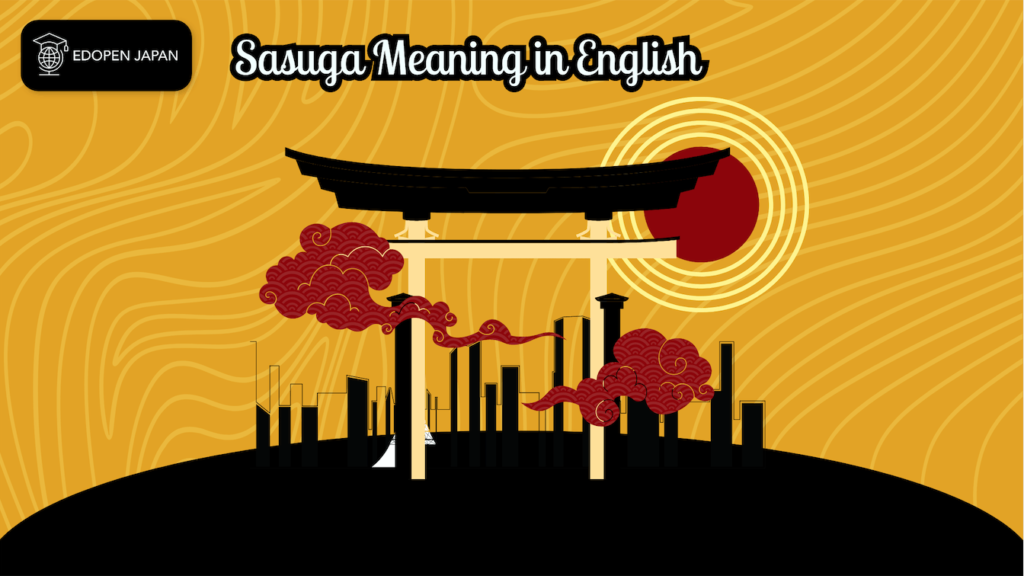
The meaning of sasuga in English can be summarized as follows;
- “さすが!Sasuga! That’s great! This is great! I’m very proud of you! And more to complement the other people.
- “さすがに・Sasugani」means as you would think, as I have just thought… because I am expressing what I actually thought by myself, but my feelings go against it or cannot do it.
- “さすがの・Sasugano」 means even..
Summary
In conclusion, we can summarize as follows: “流石 or Sasuga” must be read as “Sasuga” and not as nagareishi or ryuseki, which means “as expected”.
- Sasuga” has other meanings, such as “I or you just thought about it,” or even “expressing certain emotions or feelings in it.
- “Sasuga” is used to express “admiration and to react against the behavior of the other person.
- “Sasuga” could not be used to express our praise or admiration for our superiors. The use of another expression would be highly recommended.

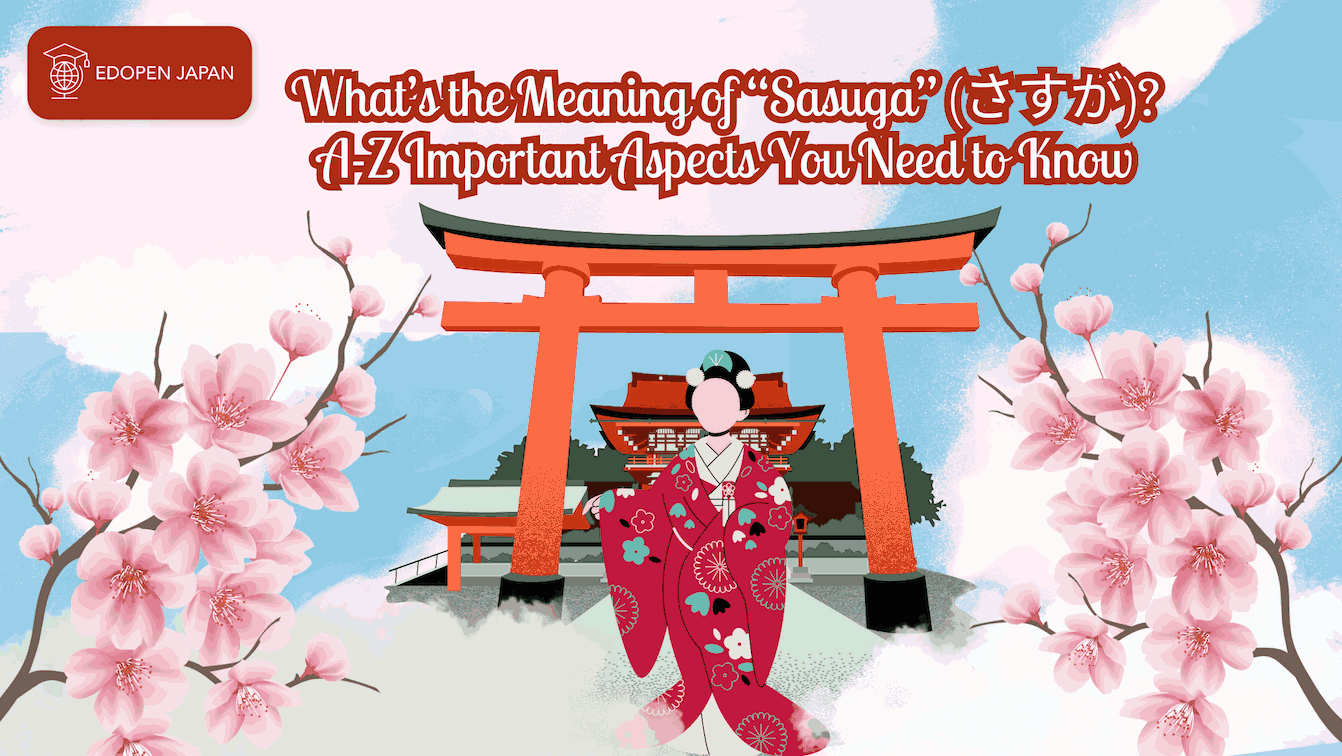











Leave a Reply